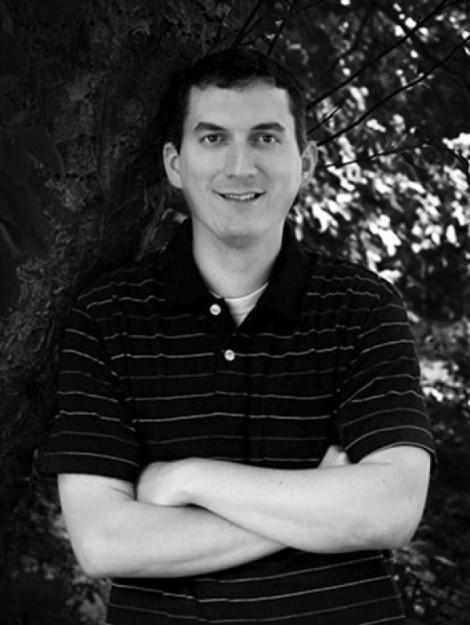
DAN WELLS
City Weekly: What’s the strangest compliment you received that was actually a backhanded way of questioning whether you’re safe to leave alone with children?
Dan Wells: Well, that’s almost a direct quote from my mother-in-law. … I’ve had a surprising number of people ask me if the books are at all autobiographical. Like you say, in a backhanded way, it’s kind of flattering that I can get into the character enough that people think I’m as messed up as he is.
CW: In Mr. Monster, we see John drifting into more extreme behavior. Did you know how far you could push John’s actions while still having him remain relatable?
DW: There’s a point in [Mr. Monster], involving a cat that has turned a lot of people off. In my writing group, I completely lost a guy whose opinion I very much respect. I worried about that reaction, and I decided to trust my plan anyway; by the end of the book [the fellow writer] had come back around and said, “OK, … I see that he had to fall into this pit so that he could crawl back out of it again.” … I’ve been really amazed at the strong reaction that scene gets. I do horrible, horrible things to people in this book. And yet inevitably, it’s the cat that gets under people’s skin.
CW: I see a thematic connection between the John Cleaver books and the Twilight series, with characters creating intricate rules to keep them from doing the evil they realize is part of their nature.
DW: I think, mostly, that’s indicative of a large-scale trend in our media, where the ones who used to be bad guys are the good guys now: vampires and werewolves and serial killers. That’s partly because we as a society are grappling with our own potential for evil. We’re in the middle of a very long ongoing war … the torture in Guantanamo, all of these things that we are complicit in as a people, and we’re not certain how we feel about them. So, we’re casting ourselves more and more as the traditional bad guys, trying to be good.
CW: Is it a stretch to read a religious component into this similarity between two horror works by two LDS writers?
DW: I don’t know. … Jeff Lindsay is also doing it with Dexter; you can find it in a lot of different places. So, I don’t know if I’d say it’s a specifically Mormon thing. It is certainly a moral thing.
Full audio of Scott Renshaw's interview with Dan Wells
MR. MONSTER
By Dan Wells
Tor Books, $11.99
FearfulSymmetry.net
JAMES DASHNER
City Weekly: The Scorch Trials are set in a post-apocalyptic world, like Suzanne Collins’ Hunger Games series. What is it about darker material that’s particularly resonating with teen readers?
James Dashner: There was a time when pure fantasy like Harry Potter created this big rejuvenation in reading, but now I think it’s shifting toward stories that are in some ways fantasy, … but with the added element that it actually could happen. I think it’s just fascinating to all ages to look into this future that’s actually possible, and give you that kind of creepy feeling that adds another element to it.
CW: You describe some pretty gruesome deaths, yet you also have the characters use a lingo that avoids graphic vulgarities.
JD: With violence, there is no black or white as far as what’s acceptable, but language is just so automatic. If you drop even one f-bomb in your book, you can pretty much forget being in a middle school. … So, the language I made up really had two purposes: One, to give their language a flavor of a different time and place, but with a little bit of harshness; but on the practical side, so that I wouldn’t limit this huge audience. With the violence… I just go with my instinct, I think [young readers] can handle it; I know I could handle it when I was growing up.
CW: Why did you choose to make The Flare, the disease that’s afflicting this world, something that makes victims lose their minds rather than a physical threat that will kill them?
JD: There’s so many books where a virus turns people into zombies, and I have a little taste of that [in Scorch Trials], but … to me [insanity is] much more frightening than anything else I can think of. I would much rather die of some horrible flu that will take a couple of weeks than slowly go crazy and become an animal over years.
CW: There’s a theme in what these characters experience of having to make moral choices at times of profound stress and crisis. How did you explore that idea?
JD: The phrase that appears in Book 1, and a couple of times in Book 2—“WICKED [a mysterious government agency] is good”—has so many meanings on so many levels. I think that phrase will end up describing a lot. The world isn’t black and white; it’s shades of gray.
Full audio of Scott Renshaw's interview with James Dashner
THE SCORCH TRIALS
By James Dashner
Delacorte, $17.99
JamesDashner.com
|
Scott Renshaw:
|